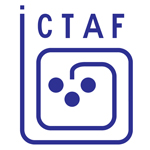Ehud Gazit's Interview
Prof. Ehud Gazit is the Vice President for Research and Development of Tel-Aviv University (TAU) and the incumbent of the Chair for Nano-Biology. He received his Ph.D (with highest distinction) from the Weizmann Institute of Science in 1997.
Gazit's research is directed toward the study of protein folding, misfolding, and self-assembly. His laboratory was the first to discover aromatic dipeptides that form nanotubes and nanospheres with unique mechanical and chemical properties. Applications of these nano-assemblies include ultra-sensitive biosensors, energy-storage devices, and metallic nanowires. His work has been published in prestigious academic journals such as Science, Nature Nanotechnology, and Proceedings of the US National Academy of Science, among others. Gazit served as one of the Strategic Research Program (SRP) Leaders of the EU "Nano2Life" Network of Excellence and as an expert of the European Observatory of Nanobiotechnology (EoN). He is on the editorial board of several journals including Journal of Bionanoscience, Nanomedicine, PLoS ONE, Amyloid and Current Chemical Biology.
Gazit's technology transfer achievements were acknowledged by inclusion in the 40/40 list of the The Marker magazine in 2007 and the 2008 list of "100 Innovations from Academic Research to Real-World Application" by the Association of University Technology Managers (AUTM).
Q. Can you envision major S&T wild cards in your areas of research that may occur in the next 20 years?
New nanotechnology-based materials & structures with outstanding qualities, much better than any available material today in terms of stiffness, hardness, unique optical properties (e.g. optical evasiveness) and more.
Targeted artificial viruses that could deliver DNA viral with no available vaccine.
Infective agents for degenerative diseases.
New organic materials embedded in protection and security applications.
The combination and synergy between super strong new materials, protection appliances based on nano-technologies and organic materials, and additional features like optical evasiveness, could create entire new standards for equipments with unprecedented features.
Q. What is the importance of these breakthroughs to ERA? What could be their dramatic impact?
All the developments that I mentioned are extremely relevant to the EU public health, homeland security, and quality of life. Even for the survival of minor and major ethnic groups and countries. The dramatic (negative) impact could be losing the control in the development of new materials. These new materials may have various impacts on the human body and on the quality of life, as well as causing harm to the environment. Beyond that, new materials, as well as artificial viruses and various other agents, could cause a broad range of security issues at all levels: personal security, homeland security and EU security.
Q. What are the weak signals that (if detected) could hint at a growing likelihood of the wild cards that you mentioned?
Massive manipulation of DNA. Development of new materials based on biological agents and manipulated by using various nanotechnologies.
Q. Can you identify causal relationships between the developments you mentioned?
The relationship between very strong new material and “bullet proof” protection appliances based on nanotechnologies and organic materials could create very strong and highly capable equipments. If you add to that new kind of stiff materials with properties such as optical evasiveness, you create a new level and standards of equipment.
Q. Looking ahead to the future, what are the top priorities for EU research, as implied by the wild cards that you mentioned?
Major levels of control and regulatory steps should be developed, in particular regarding the following two issues: (1) Safety and manipulation of new materials, (2) DNA manipulation and embedding.
Interviewer (Institution)

ICTAF - Interdisciplinary Centre for Technological Analysis & Forecasting (Israel) - Founded in 1971 at Tel-Aviv University, the major university in Israel, ICTAF is a leading institute in technology foresight, technology assessment and policy-support research. Its main mission is to help policy-makers reach informed decisions based on technology's role in economy and society and to serve as a think-tank for future policy planning. The multidisciplinary center taps the expertise of world-class scientists at Tel-Aviv University and other research institutions to create a core body of researchers with deep knowledge in a diverse range of fields. Its clients include governmental departments, hi-tech industries and international organisations. ICTAF researchers are involved in a wide range of subjects with special attention to issues related to emerging technologies and their impact. ICTAF has led the Israeli Foresight Study towards the 21st century, covering all leading science and technology fields in Israel. Other studies dealt with Nanotechnology, Quantum technologies, security-related technology assessments, and emerging trends in e-Government, Knowledge Management, education, employment and leisure. ICTAF is very active in the international community and has participated in several EC-funded projects, as a coordinator or as a workpackage leader. Recent examples are a Foresight study in the EU network of excellence “Nano-to-Life” (future developments in Nanobiotechnology), coordination of the FP6 project ELOST (which includes foresight on the future of e-Government), major workpackages in the FP5 project KINX (Knowledge Management solutions for SMEs), a leading role in the FP5 project e-Living (“Life in a Digital Europe”), and the EU project “Platform Foresight” (public research policies and priorities in Europe).
iKNOW has been featured in the media and several research projects:
DIE ZEIT (Germany), Financial Times (Germany), El Heraldo (Colombia), Prospective Foresight Network (France), Nationalencyklopedin (Sweden), EFP - European Foresight Platform (EC), EULAKS - European Union & Latin America Knowledge Society (EC), CfWI - Centre for Workforce Intellience (UK), INFU - Innovation Futures (EC), Towards A Future Internet (EC), dstl - Defence S&T Laboratory (UK), EFSA - European Food Safety Agency (EU), Malaysia Foresight Programme (Malaysia), Bulletins Electroniques more...